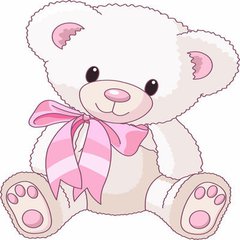(单词翻译:单击)
This is Everyday Grammar. I'm Kaveh.
欢迎收看《每日语法》栏目,我是卡维。
And I'm Lucija. You know the other day I saw the most adorable bear on TV.
我是露西佳。你知道吗?那天我在电视上看到一只最可爱的熊(bear),
But I couldn’t bear the thought it was in a zoo.
但我不能忍受(bear)的是它被关在动物园中。
Wait, bear or bear? What or what?
等等,bear还是bear?什么跟什么?
Well, those two words sound the same, they're spelled the same, but they have different meanings!
哦,这两个词发音一样,拼写一样,但意思不同!
Yes, they do. Words like these can be confusing for native speakers and English learners.
是的,确实是这样。像这类词对于母语为英语的国家的人和英语学习者来说,都容易造成混乱的。
BEAR as a noun is a wild animal.
bear作名词指代的是一种野生动物;
BEAR as a verb means to accept or deal with something difficult.
bear作动词是指艰难地接受或者处理某事/物;
BEAR can also mean you're carrying something or accept some type of responsibility.
bear也可以指你携带某物或接受某种责任。
Wow! That's a lot of different meanings just for one word spelled B-E-A-R. What about other words like these?
哇哦!对于一个拼写成B-E-A-R的词来说,确实有很多意思,那其他类似的词呢?
Some sound the same, but are spelled differently.
听起来读音一样,但拼写不同的,

Like, TO, TOO, TWO. One is a preposition, the other is an adverb or synonym for "also," and the last one is a number.
诸如:to/too/two,其中第一个为介词,第二个是副词或作also的同义词,最后一个为数词。
Or PRINCIPLE and PRINCIPAL. One means "truth," the other is a head of a school or organization.
还有,principle/principal,第一个意指事实/真相,第二个意指学校或组织的负责人。
Or HERE, HEAR. The first one indicates a location; while the other one indicates listening.
另外,here/hear,第一个表示地点,第二个表示听。
These are all good examples to cite!
这些都是很好的例子。
And of course you can find more of these on our site!
当然,在我们的网站上你会找到更多类似的词。
And you will see them with your sight!
到时你就能亲眼看到他们了!
OK. That's enough. And that's Everyday Grammar.
好了,足够了。以上就是今天节目的全部内容。


